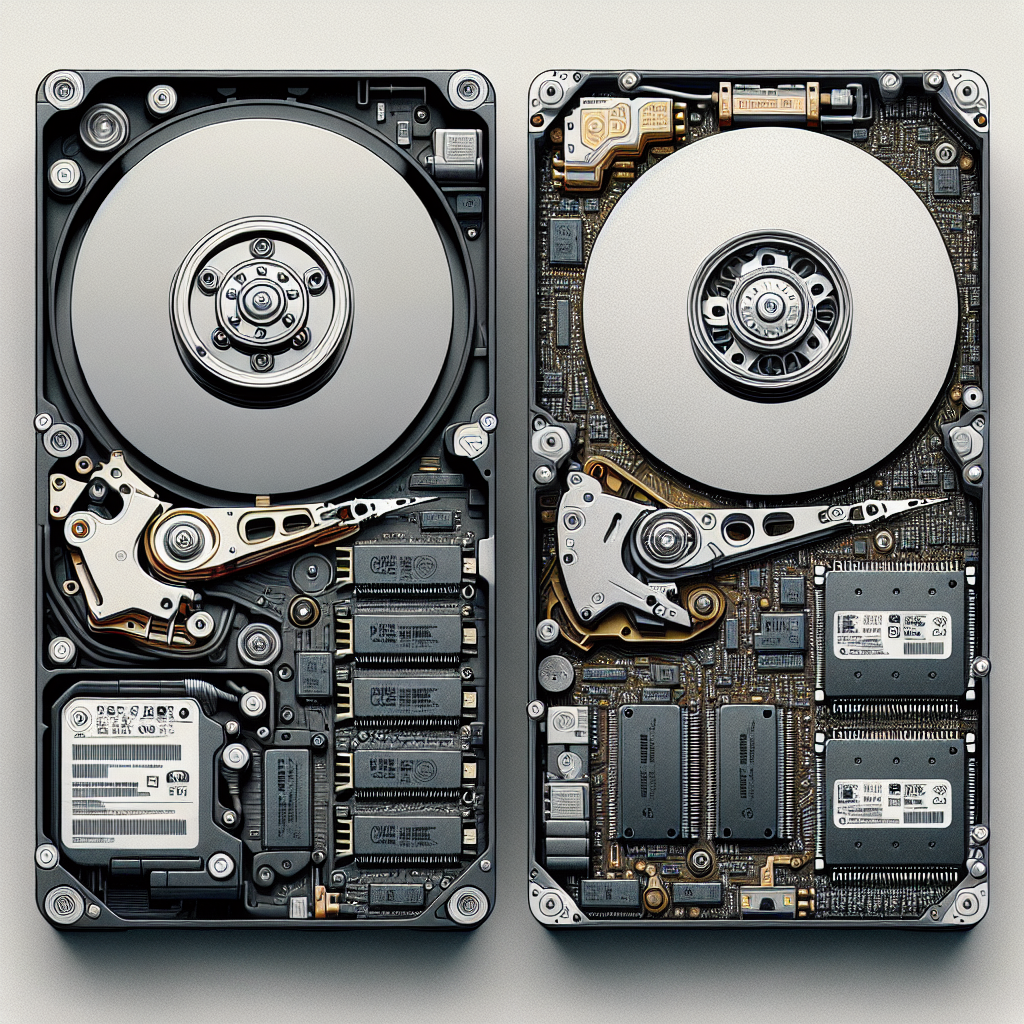When it comes to choosing a storage solution for your computer, you may be faced with a choice between a traditional hard disk drive (HDD) and a solid state drive (SSD). Both options have their own set of advantages and disadvantages, and understanding the differences between the two can help you make an informed decision.
One of the main differences between HDDs and SSDs is the technology they use to store and retrieve data. HDDs use spinning platters to store data, while SSDs use flash memory chips. This difference in technology leads to differences in performance, reliability, and price.
One of the biggest advantages of SSDs over HDDs is speed. SSDs are significantly faster than HDDs when it comes to read and write speeds, which means that your computer will boot up faster, programs will load quicker, and files will transfer more quickly. This speed advantage makes SSDs a popular choice for users who need high-performance storage solutions.
Another advantage of SSDs is their durability. Because they have no moving parts, SSDs are less prone to mechanical failure than HDDs. This means that SSDs are more reliable in the long run and are less likely to fail due to physical damage.
On the other hand, HDDs have some advantages of their own. One of the main advantages of HDDs is their cost. HDDs are significantly cheaper than SSDs, making them a more budget-friendly option for users who need a large amount of storage space without breaking the bank.
Additionally, HDDs are available in larger capacities than SSDs, making them a better choice for users who need to store a large amount of data. This makes HDDs a popular choice for users who work with large files, such as photographers, videographers, and graphic designers.
In conclusion, the choice between a HDD and a SSD ultimately comes down to your specific needs and budget. If you prioritize speed and reliability, an SSD may be the better option for you. However, if you need a large amount of storage space at a lower cost, an HDD may be the more suitable choice. Ultimately, both options have their own set of advantages and disadvantages, so it’s important to weigh your options carefully before making a decision.


Leave a Reply